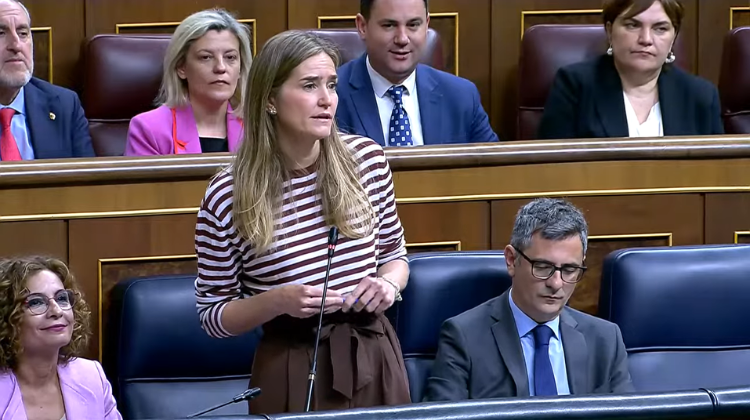With a highly charged control session, the Congress of Deputies resumed its activities on 14 May, where the energy crisis caused by the 28 April blackout took centre stage.
The Third Vice-President and Minister for the Ecological Transition and the Demographic Challenge, Sara Aagesen, appeared both at her own request and at the request of several parliamentary groups to provide details on the Government’s crisis management, ongoing investigations, and plans to review the national electricity system.
During her address, Aagesen dismissed suggestions that the blackout was caused by a cyberattack or the growing presence of renewable energy sources, instead pointing to technical failures at substations in Granada, Badajoz, and Seville, likely linked to a power surge in the grid.
The Minister defended the Government’s response and highlighted that, at the time of the incident, the electricity system was operating normally, with low demand and in export mode.
She confirmed that investigations are ongoing and that no definitive conclusions have been reached, as millions of technical data points are still under analysis. Nevertheless, she acknowledged the need to enhance grid stabilisation mechanisms to ensure the safe integration of the increasing renewable energy production.
The PP pushes for a european audit and demands accountability
The parliamentary session was marked by an urgent interpellation from the Partido Popular (PP), which demanded explanations regarding the Government’s “actions and inactions to prevent a blackout like the one suffered”. They also called for details on the Government’s communications with the European Commission and the resilience plans being considered to strengthen the electricity system.
The political debate culminated in the approval of a motion promoted by the PP, which received the backing of Vox and the abstention of Junts per Catalunya. The motion calls for an independent audit by the European Union’s Agency for the Cooperation of Energy Regulators, as well as an urgent update to the National Energy Security Strategy and the implementation of new operational and protection protocols for the grid, as previously demanded by Red Eléctrica Española (REE).
The PP also proposed that the upcoming review of the National Integrated Energy and Climate Plan (PNIEC) should include criteria based on the lessons learned from the blackout, prioritising technological neutrality, supply security, sustainability, and competitiveness.
Experts warn: the energy transition must be backed by grid investments
Industry experts stressed that although progress is being made in identifying the causes, it is critical to immediately launch an investment plan in grid infrastructure and technologies that ensure system stability.
“We have long warned that the rollout of renewables must be accompanied by investments in grid capacity to support the increasing energy input,” experts told Strategic Energy Europe.
They also recommend accelerating the deployment of power electronics so that renewable energy plants can not only inject power into the system but also actively contribute to its stability.
With no clear cause, parliament establishes investigation commissions
Although Minister Aagesen reported that all available data is under review, Red Eléctrica Española has yet to present a final report providing a definitive explanation for the blackout. For this reason, both Parliament and the Senate have agreed to establish investigative commissions to clarify the events and propose measures to prevent future system collapses.
Meanwhile, the Government continues to defend its energy transition strategy and insists that renewable energy sources are not to blame for the blackout. “Clean energy is the future of the country and part of the solution, not the problem,” Aagesen reiterated during her appearance.
The debate over the reliability of Spain’s electricity system is set to continue in the coming weeks, amid political and social pressure to uncover the causes of the incident and establish concrete measures that ensure the security of supply in a context of growing electrification.






























